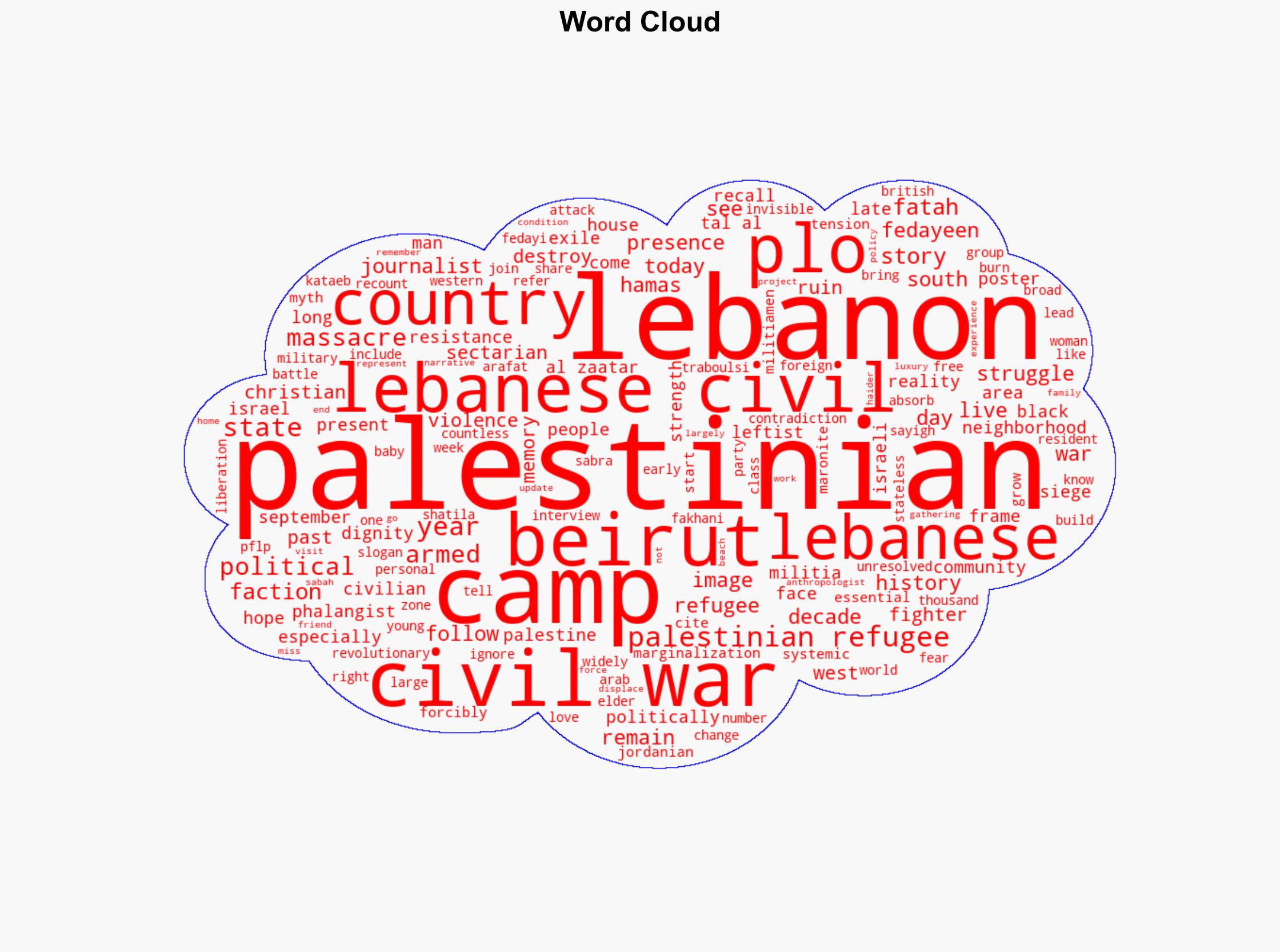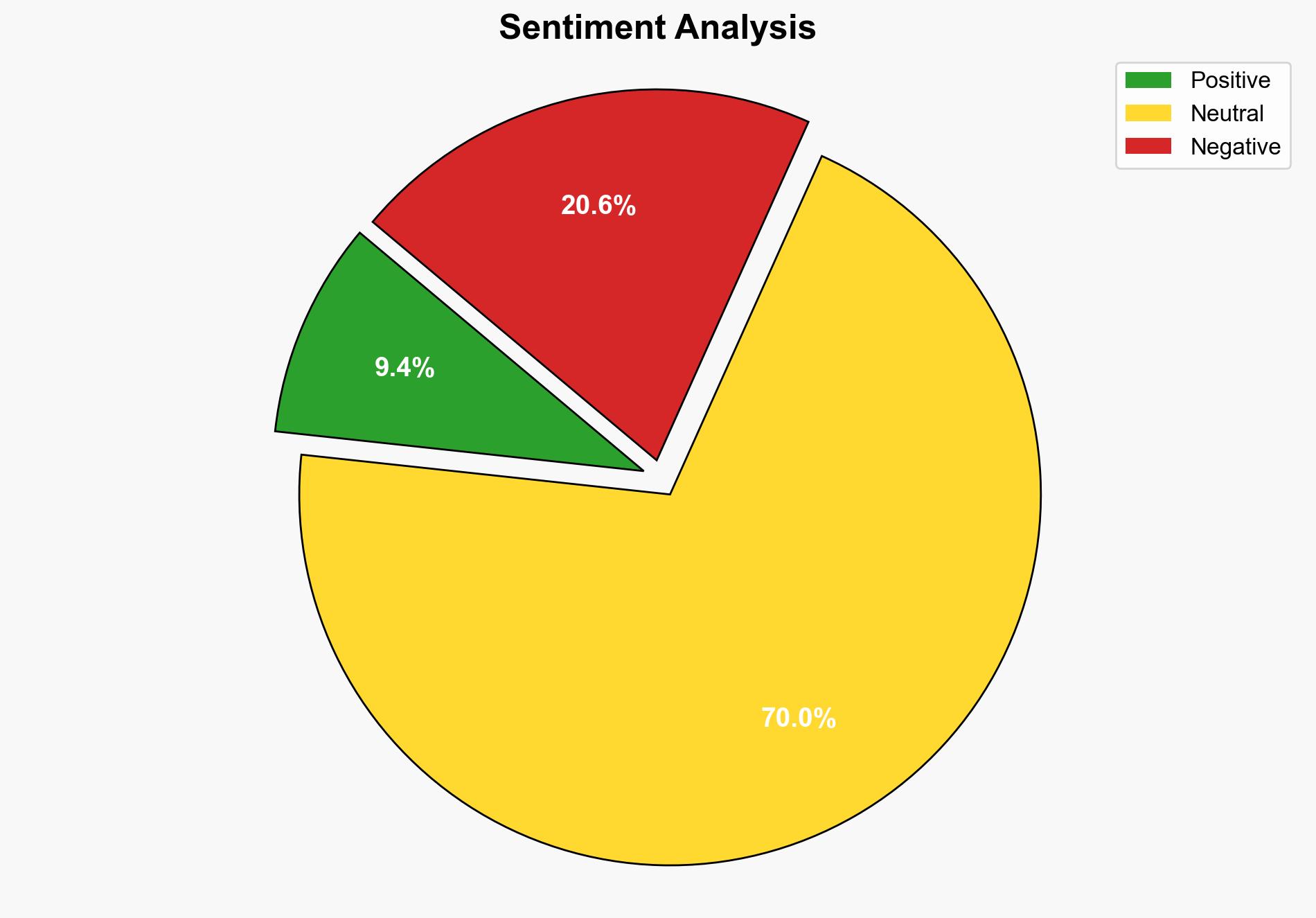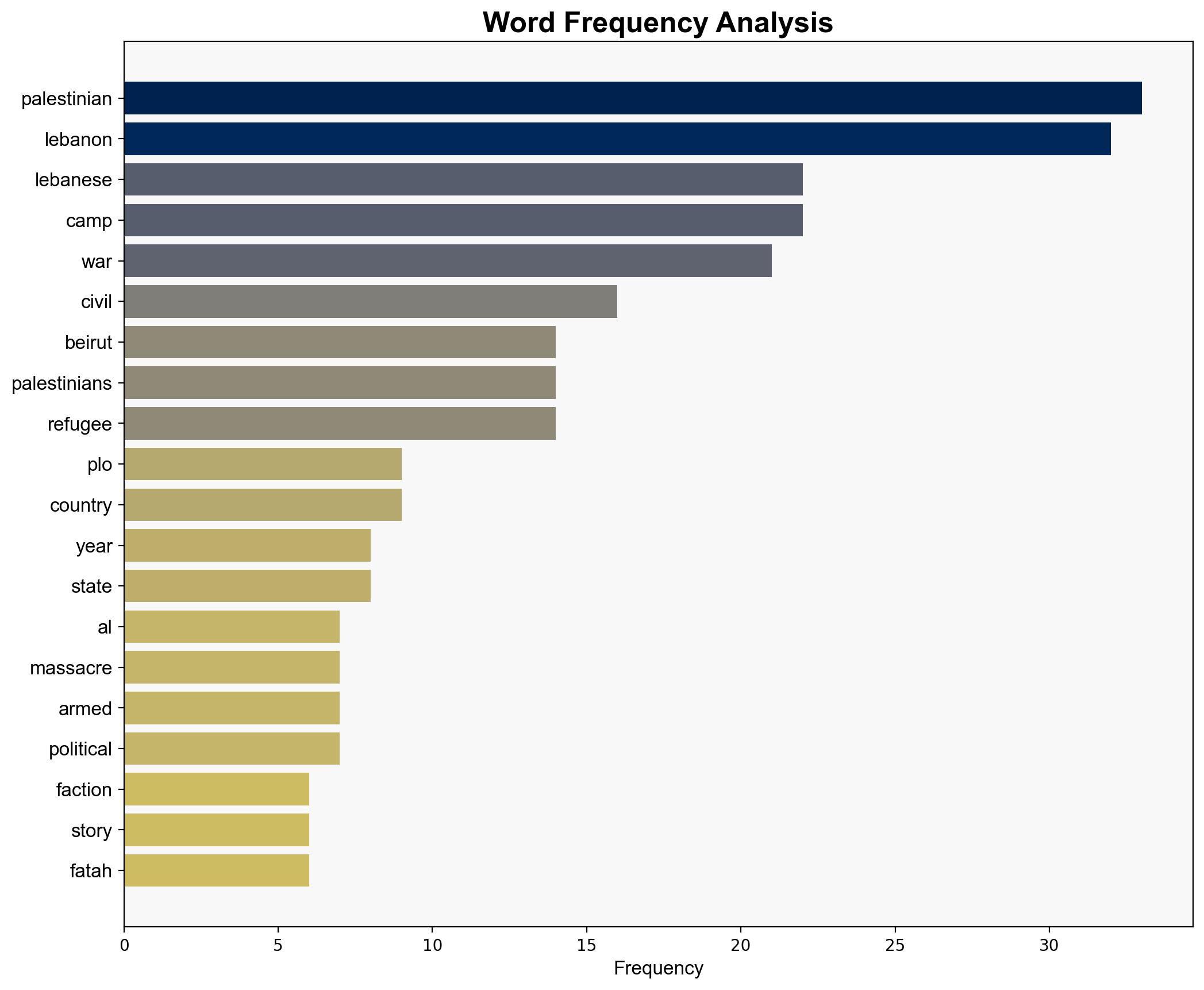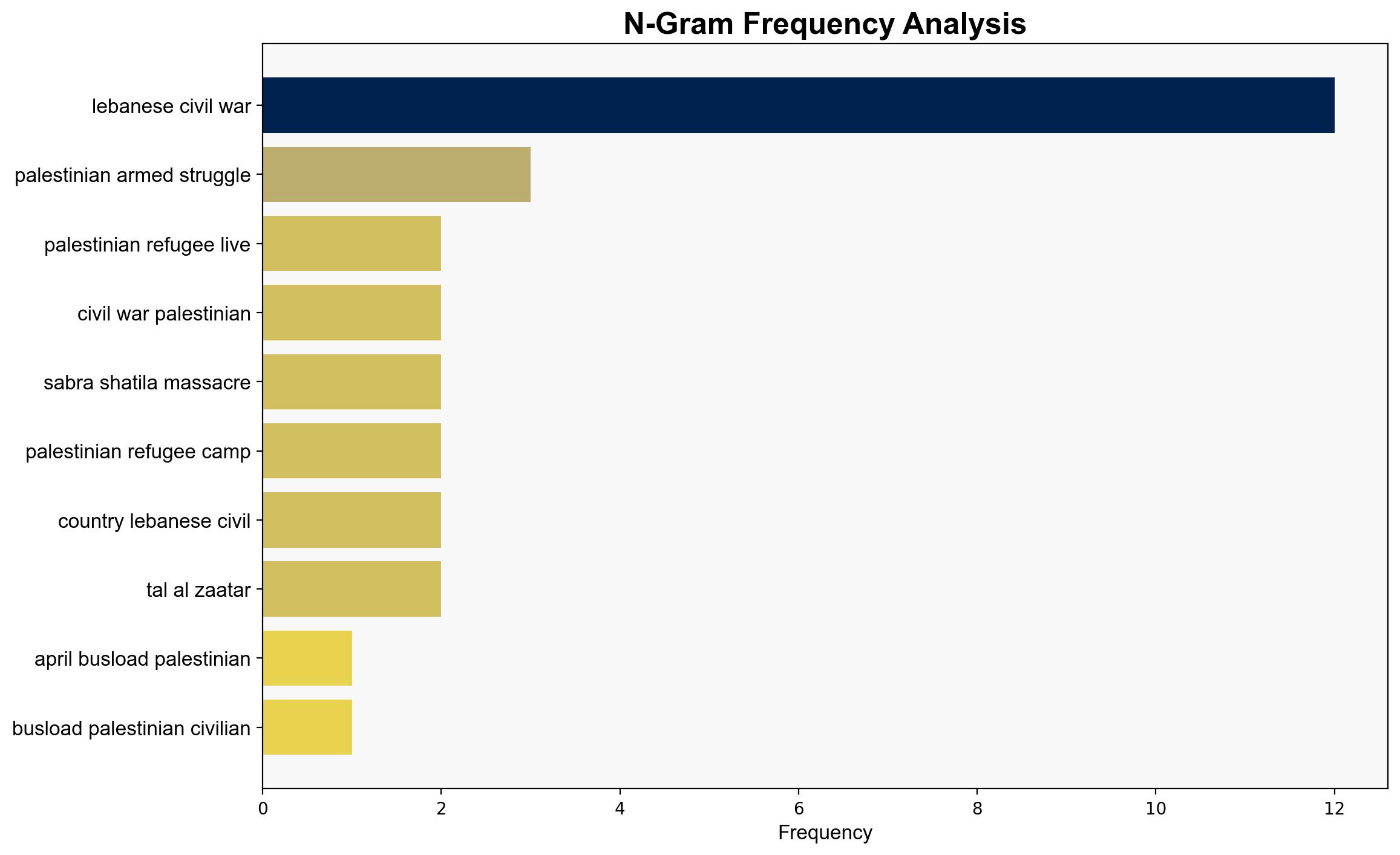50 years since the Lebanese Civil War Palestinian refugees cling to renewed hope for liberation and return – Mondoweiss
Published on: 2025-04-13
Intelligence Report: 50 years since the Lebanese Civil War Palestinian refugees cling to renewed hope for liberation and return – Mondoweiss
1. BLUF (Bottom Line Up Front)
The Lebanese Civil War’s inception on April 13, 1975, marked a pivotal moment in Middle Eastern history, significantly influenced by the presence of Palestinian factions. The dynamics between the Lebanese state, sectarian militias, and Palestinian armed groups have left enduring impacts on regional stability and the socio-political landscape. The Palestinian refugee situation in Lebanon remains unresolved, with systemic marginalization persisting. Key recommendations include enhancing diplomatic engagement to address refugee rights and fostering regional cooperation to mitigate potential conflicts.
2. Detailed Analysis
The following structured analytic techniques have been applied for this analysis:
General Analysis
The Lebanese Civil War was catalyzed by the ambush of Palestinian civilians in Ain al-Rummaneh, highlighting pre-existing tensions. The arrival of the PLO in Lebanon in 1971, following their expulsion from Jordan, reshaped Lebanon’s internal dynamics. Palestinian factions, notably Fatah and the PFLP, established semi-autonomous zones, contributing to the complexity of the conflict. The narrative of the Palestinian fedayeen underscores the struggle for identity and survival amidst systemic marginalization.
3. Implications and Strategic Risks
The ongoing marginalization of Palestinian refugees in Lebanon poses risks to regional stability and security. The lack of integration and political representation for Palestinians could exacerbate tensions and lead to renewed conflict. The presence of armed factions remains a potential flashpoint for violence, impacting both national security and economic interests in the region.
4. Recommendations and Outlook
Recommendations:
- Enhance diplomatic efforts to address the rights and integration of Palestinian refugees in Lebanon.
- Foster regional cooperation to prevent the resurgence of armed conflict and promote stability.
- Implement policies to improve the socio-economic conditions of Palestinian refugees, reducing the appeal of radicalization.
Outlook:
Best-case scenario: Successful diplomatic interventions lead to improved conditions for Palestinian refugees and enhanced regional stability.
Worst-case scenario: Continued marginalization and lack of integration result in increased tensions and potential conflict.
Most likely outcome: Incremental progress in diplomatic efforts with ongoing challenges in achieving comprehensive solutions for refugee integration.
5. Key Individuals and Entities
Significant individuals and organizations mentioned include Yasser Arafat, Fatah, Popular Front for the Liberation of Palestine (PFLP), and PFLP-GC (General Command). These entities played crucial roles in shaping the dynamics of the Lebanese Civil War and continue to influence the current geopolitical landscape.




